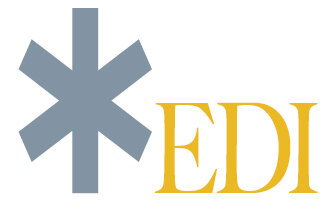Part I: Don’t Go
This week as we head towards the annual demands on us all for seasonal mirth, merriment and mayhem, I’ll be offering up a multi-part series on neutralizing fattism and healthism at seasonal gatherings:
Part I: Don’t Go
Part II: We’re on Each Other’s Team
Part III: Bring It
Part IV: Empathy
Marceline Smith and Virginia State Park: Flickr.com
I will be discussing the ins and outs of healthism in more detail in another blog post. For now, when I speak of fattism and healthism I am talking about all the diet talk, the healthy-living behaviors talk, the body shaming and the good/sinful dichotomy of food that ruins what might otherwise be cherished time with those closest to you.
If there’s one thing we can all likely agree on, it’s that we’re pretty sure it’s our own family that puts the diss* in dysfunction at times. So much prickly, snarky, retaliatory, enabling, passive-aggressive, combative, hurt, withdrawn, sulky, belittling, teary, contemptuous, sad and silence-laden interactions in one room—and that’s just for the families that get to call themselves mostly loving and functional! For those families where mental illness and/or addiction and trauma feature prominently, gatherings are often painful and disastrous.
Before I get into neutralizing fattism and healthism, I want to address the decision you may have to make about whether to be present at any gathering this season or not. An eating disorder is a mental illness. I prefer to frame it as mental brittleness rather than illness. Someone with an eating disorder has a compromised emotional system, just as someone who has undergone chemotherapy has a compromised immune system.
Most of you familiar with the Eating Disorder Institute forums are also familiar with the term TW (trigger warning). This term was originally developed as a way to warn those with post-traumatic stress disorder (PTSD) that the content of a particular post or images might trigger a flashback to the events or circumstances responsible for the onset of PTSD. The term has now spread to the point that it serves to warn of the presence of material that might be upsetting in some way to someone out there. As a result, we now see a backlash in our culture where opinion pieces suggest that those requesting such warnings own their fragility instead, and learn to live in the real world. I believe that we live in societies that still have the bandwidth to extend compassion to those less resilient among us; and I believe that the backlash has more to do with how it makes the resilient feel less entitled and more vulnerable than they care to admit. We have no problem donning gown and gloves as a way to protect an immune-compromised patient from the possibility of catching an infection from us; so it seems ridiculous to suggest that applying a TW is an unacceptably onerous effort to protect an emotionally-compromised fellow human being.
But just as an immune-compromised patient might choose to avoid a family gathering because she knows one of the six adorable cherubic children present will most assuredly have a cold, emotionally-compromised individuals need to make similar protective choices for themselves as well. In other words, TW is a two-way street—it’s valid to ask for accommodations, but it’s also valid to own your limitations as well.
It’s okay to skip the seasonal gatherings to reflect an honest understanding of the brittleness you are working on right now. And that brings up one final point on emotional brittleness I’d like to make before we move onto those who will navigate seasonal gatherings this year: people with emotional brittleness tend to work hard to return to a resilient state. I don’t know anyone with an eating disorder, OCD, PTSD, phobias, anxiety disorders and the like who has any intention of remaining brittle and vulnerable. If you need the accommodation of TW, or to pass on this year’s get-togethers, then don’t beat yourself up. It’s no different than needing people to put on gown and gloves because your white cell count is too low right now. You don’t create resilience from brittleness through stressing the system. Stressing the system works to increase resilience from an already resilient state, but it just breaks the system if it’s brittle at the start. Resilience returns with care and patience along with guidance and support from your counselor or therapist.
Next installment coming tomorrow....
* Slang, (to diss), meaning to disrespect.


